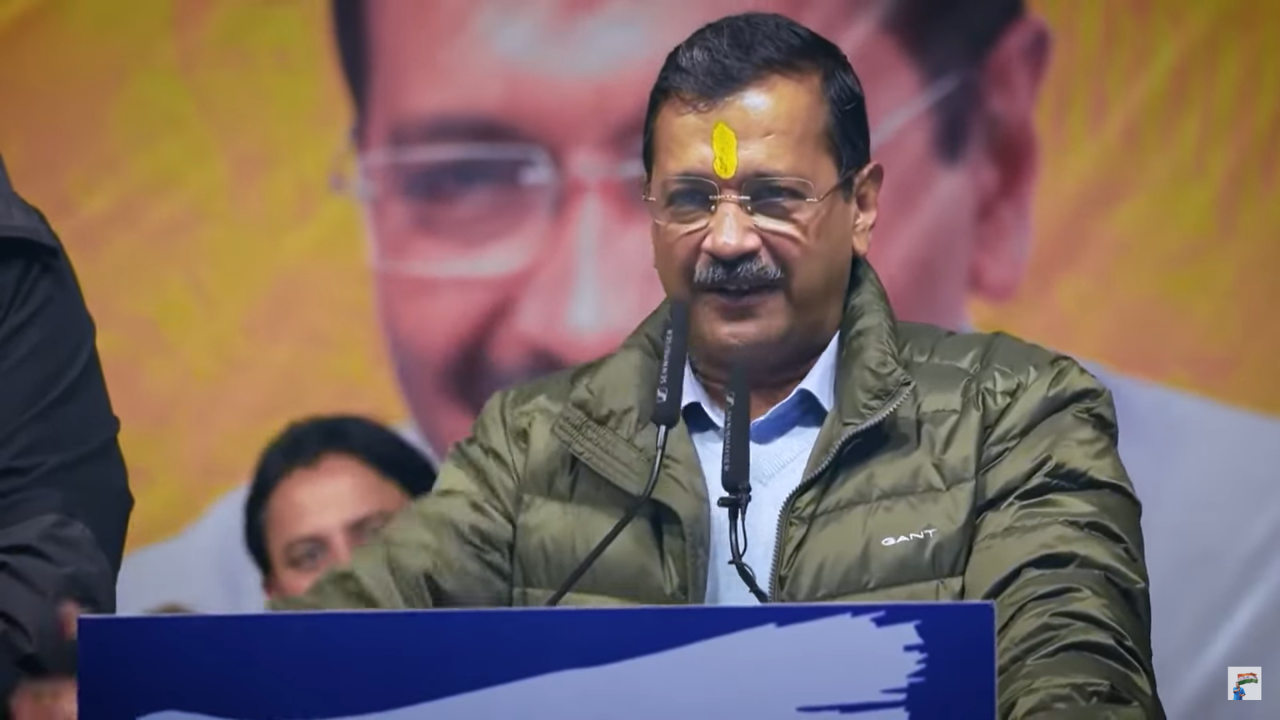
Kejriwal's Ramayana Remark Ignites Delhi Election Firestorm
Kejriwal's Ramayana Remark Sparks a Political Firestorm in Delhi
The Delhi assembly elections are heating up, and a recent comment by AAP convenor Arvind Kejriwal has ignited a fierce political battle. Kejriwal, in a speech targeting BJP, likened the BJP to the golden deer from the Ramayana, accusing them of being deceptive and only interested in votes. This seemingly innocuous comparison has sparked outrage amongst BJP leaders, who have fiercely criticized Kejriwal for misinterpreting Hindu scriptures for political gain. Get ready to dive into this explosive controversy!
Kejriwal's Controversial Ramayana Analogy
During a campaign rally, Kejriwal drew a parallel between the BJP and the golden deer that lured Sita away from her protection. He warned slum dwellers against the BJP, portraying them as akin to the deceptive golden deer. He highlighted his message with this politically charged analogy, stating that BJP, similar to the cunning deer in the epic Ramayana tale, aims to deceive voters before the upcoming elections.
BJP's Fury and Counterattacks
The BJP immediately retaliated, accusing Kejriwal of twisting religious texts for political manipulation. Senior BJP leaders like Manoj Tiwari were particularly vocal, labeling Kejriwal as a 'Chunavi Hindu,' or an opportunistic Hindu, criticizing his alleged lack of understanding of Hindu scriptures. The BJP's strong reaction highlights the sensitivity surrounding religious narratives in the Indian political landscape and underscores how such religious allusions can significantly impact election campaigns.
The Political Ramifications of Religious Discourse
The controversy underscores the delicate balance between religious beliefs and political messaging. The use of religious narratives in political speeches has the potential to sway votes but also carry the risk of alienating voters. This clash over the interpretation of Ramayana and the ensuing accusations highlights the challenges faced by politicians seeking to connect with religious sentiments without stoking religious controversy.
Navigating the Complexities of Religious Symbolism
The incident serves as a stark reminder of the intricate relationship between religion and politics in India. The Ramayana's deeply embedded significance in Hindu culture and belief, makes the use of its characters, particularly Lord Rama and Ravana, as political tools a sensitive subject matter. How a candidate utilizes such narratives significantly influences political engagement and the overall perception among the electorate. Thus, navigating religious discourse within the confines of political messaging necessitates profound cultural understanding.
The "Chunavi Hindu" Accusation and its Implications
The recurring label of "Chunavi Hindu," aimed at politicians perceived as using religious sentiments for electoral advantage, is increasingly prevalent. This term implies a lack of genuine faith and merely indicates strategic political maneuvering disguised as religious conviction. This tactic raises questions about political sincerity, questioning candidates' intentions and their devotion to their respective faith.
Analyzing the Strategic Use of Religious Messaging
Analyzing Kejriwal’s strategy reveals a complex interplay between religious sentiment and political mobilization. By associating the BJP with Ravana, he seeks to cast them as deceptive and manipulative. Such use of religious allusions in politics is not new, but its effectiveness and impact always depend heavily upon its execution, the broader context of the elections, and the specific religious sensitivity within the region.
The Future of Religious Discourse in Indian Politics
The ongoing political tussle over religious messaging is unlikely to disappear before election day. We will need to wait for the results of Delhi Assembly election, but the debate about this incident will linger long after the final votes are cast. The interaction between religion and politics in the Indian democratic framework has always been, and continues to be, fraught with complex implications. Politicians will keep testing the line.
Implications for future elections
This situation might influence how political campaigns use religious narratives in future elections. This example may cause politicians to approach religious messaging more carefully. It might make candidates think twice before invoking religious symbols, stories, and scriptures for political messaging.
Take Away Points
- Kejriwal's Ramayana analogy sparked a major controversy in the Delhi elections.
- The BJP strongly criticized Kejriwal for misusing religious texts for political gain.
- The incident highlights the sensitive nature of religious discourse in Indian politics.
- The term "Chunavi Hindu" reflects concerns about politicians using religion strategically for votes.
- The future of religious messaging in Indian politics remains uncertain.








